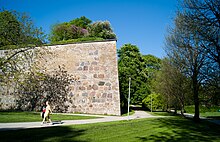.mw-parser-output .hidden-begin{box-sizing:border-box;width:100%;padding:5px;border:none;font-size:95%}.mw-parser-output .hidden-title{font-weight:bold;line-height:1.6;text-align:left}.mw-parser-output .hidden-content{text-align:left}You can help expand this article with text translated from the corresponding article in Estonian. (August 2023) Click [show] for important translation instructions.
Machine translation, like DeepL or Google Translate, is a useful starting point for translations, but translators must revise errors as necessary and confirm that the translation is accurate, rather than simply copy-pasting machine-translated text into the English Wikipedia.
Do not translate text that appears unreliable or low-quality. If possible, verify the text with references provided in the foreign-language article.
You must provide copyright attribution in the edit summary accompanying your translation by providing an interlanguage link to the source of your translation. A model attribution edit summary is Content in this edit is translated from the existing Estonian Wikipedia article at [[:et:Hirvepark]]; see its history for attribution.
You should also add the template ((Translated|et|Hirvepark)) to the talk page.
For more guidance, see Wikipedia:Translation.

Hirvepark (Estonian: Hirvepark) is a park in Tallinn, Estonia.[1]
On 23 August 1987, the anti-Soviet Hirvepark meeting took place in the park.[1]
Hirvepark is one of the most biodiverse parks in Estonia in consideration of its variety of tree species.[1]